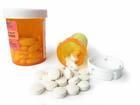|
Important things while buy medicine online
Some websites that sell medicine can be not state-licensed pharmacies or aren't pharmacies at all; or may give a diagnosis that is not correct and sell medicine that is not right for you or your condition; or won't protect your personal information. The medicines that sold online can be fake (counterfeit or 'copycat' medicines); can be too strong or too weak, or have dangerous ingredients, or have expired (are out-of-date), or haven't been approved or checked for safety and effectiveness, can be made using non-safe standards, or not safe to use with other medicine or products you use. You have to talk with your doctor and have a physical exam before you get any new medicine for the first time. Use only medicine that has been prescribed by your doctor or another trusted professional. There are more opportunities today than ever before to learn about your health and to take better care of yourself. It is also more important than ever to know about the medicines you take. Reading the label every time you use a nonprescription or prescription drug and taking the time to learn about drug interactions may be critical to your health. You can reduce the risk of potentially harmful drug interactions and side effects with a little bit of knowledge and common sense. Early in a drug's development, companies conduct research to detect or predict potential interactions between drugs. Experts evaluate the drug-interaction studies as part of assessing a drug's safety. When a drug is taken orally, it usually travels from the stomach to the liver, where it can be metabolized-the process of breaking down and removing chemicals from the body. Enzymes are complex proteins that act as catalysts in starting or speeding up chemical reactions. They cause a specific chemical change in other substances without being changed themselves. A drug may affect these enzymes by inhibiting them, which causes reduced activity of the enzyme and a buildup of the drug in the body. Or drugs may "induce" the enzymes, which causes increased activity of the enzyme and a reduction of the drug in the body. Not everything that happens in a test tube will become meaningful in humans, though. Results from these test-tube studies can tell us whether need to do further testing in people to find out if an interaction is clinically significant. Three phases of clinical trials in humans must happen before a drug can be marketed. Phase 1 studies focus on a drug's side effects and how the drug is metabolized and eliminated from the body. Phase 2 studies focus on a drug's effectiveness. And Phase 3 studies gather more information on safety and effectiveness, which includes using the drug in combination with other drugs. Researchers say there are several important variables that affect individual differences in how drugs are metabolized, including race, gender, age, and health conditions. For example, people with kidney or liver disease don't eliminate drugs from their system as well as people who are healthy. Very young children and older people have slower drug metabolism than others, and women may metabolize drugs differently than men in some cases. Over the last several years, there has been a substantial increase in the number of drug-interaction studies the FDA sees in new drug applications. If drug interactions are significant enough, they can prevent a drug from being approved by the FDA. If the agency determines that known drug interactions can be managed and that a drug's benefits outweigh the risks for the intended population, a drug will be approved. Drug-interaction information then goes into the drug's labeling in the sections on "clinical pharmacology," "precautions," "warnings," "contraindications," and "dosage and administration." The large number of drugs on the market, combined with the common use of multiple medications, makes the risk for drug interactions significant. Consumers need to tell doctors what they're taking and ask questions, and health professionals could do a better job at trying to get the information they want. So rather than asking patients what medications they take, doctors should make the questions specific: "Are you taking any over-the-counter medication? Are you taking any herbal treatments or vitamins?" Drug interactions with other drugs includes both prescription and over-the-counter medicines. Tricyclic antidepressants such as Elavil (amitriptyline) and Pamelor (nortriptyline) can interfere with blood pressure-lowering Catapres (clonidine). Taking the antibiotic Cipro (ciprofloxacin) with antacids lowers Cipro's effectiveness. Some antibiotics, such as rifampin, can lower the effectiveness of birth control pills. Sildenafil, the active ingredient in the erectile dysfunction drug Viagra, should not be taken with nitrates for heart treatment because of the potential for dangerously low blood pressure. The same is true before using any medicine. Every choice to take a medicine involves thinking through the helpful effects as well as the possible unwanted effects. The benefit and risk decision is sometimes difficult to make. The best choice depends on your particular situation. You must decide what risks you can and will accept in order to get the benefits you want. For example, if facing a life-threatening illness, you might choose to accept more risk in the hope of getting the benefits of a cure or living a longer life. On the other hand, if you are facing a minor illness, you might decide that you want to take very little risk. In many situations, the expert advice of your doctor, pharmacist, or other health care professionals can help you make the decision. To lower the risks and obtain the full benefits of medicines you need a)talk with your doctor, pharmacist, or other health care professionals; b)know your medicines--prescription and over-the-counter; c)read the label and follow directions; d)avoid interactions; e)monitor your medicines' effects--and the effects of other products that you use Important: think it through and work together with your doctor, pharmacist, or other health care professional to better manage the benefits and risks of your medicines. You have to always tell your doctor if you are or might become pregnant, or if you are nursing a baby. Always ask questions about any concerns or thoughts that you may have. Before use a medicine make sure you understand the directions; ask your doctor if you have questions or concerns. Always double check that you have the right medicine. You have to know what to do if you experience side effects and when to notify your doctor, and know when you should notice an improvement and when to report back.
What is modern plastic surgery
|

